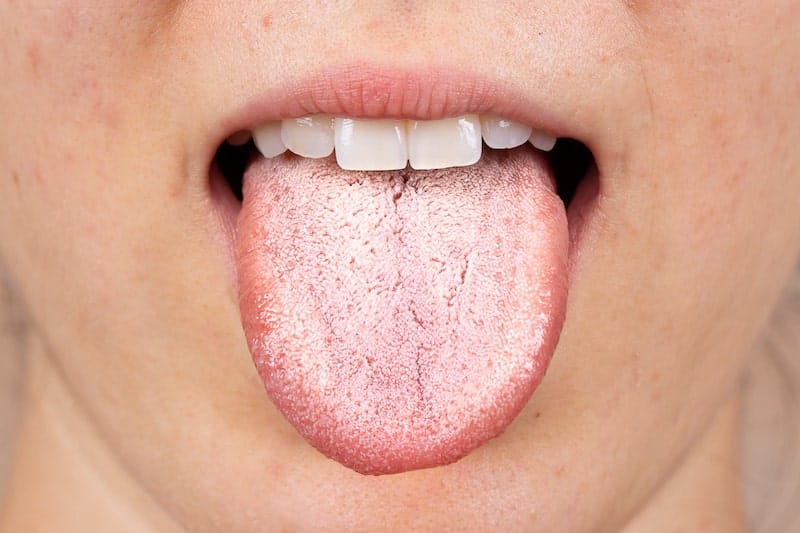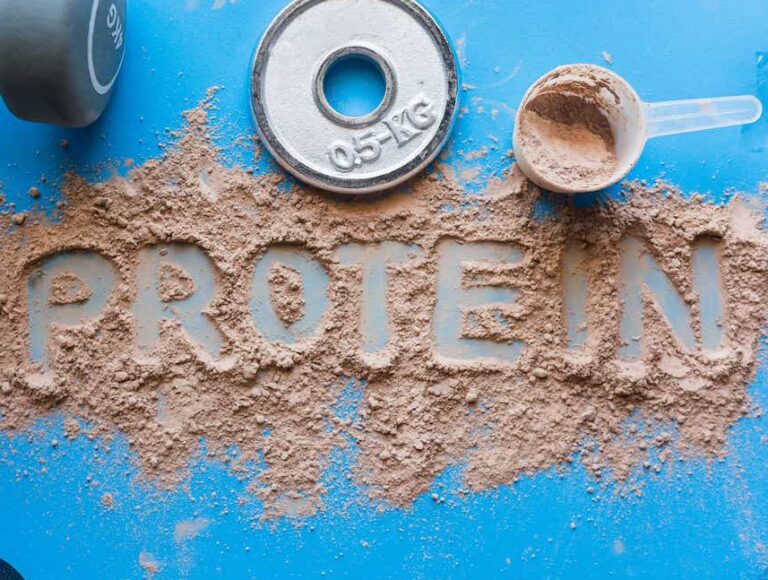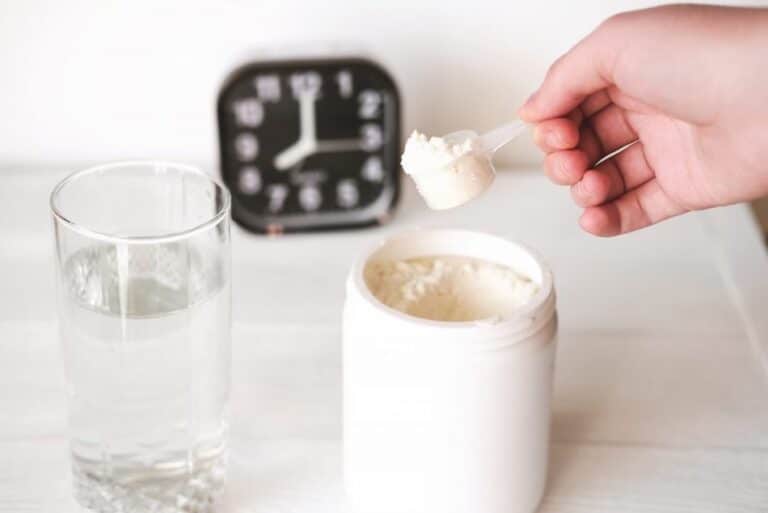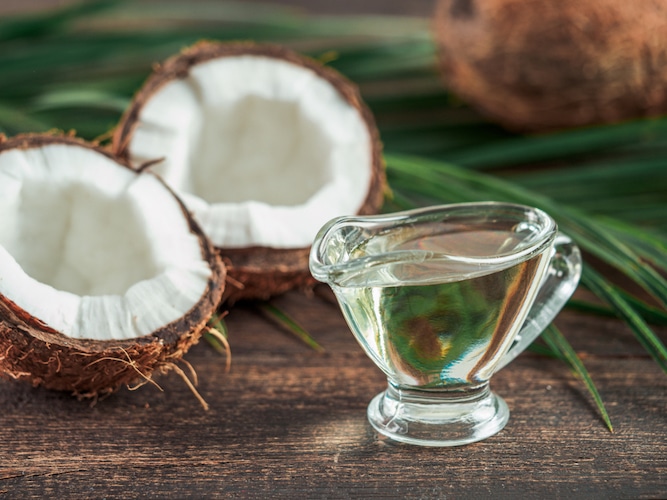Let’s take a trip to Hawaii, a magical archipelago in the middle of the Pacific Ocean. Spirulina, a small blue-green algae that is one of nature’s most nutritious plants, grows here. Spirulina is so healthy that it is sometimes called the “superfood of the sea” and many health experts believe it can have a positive effect on our health.
This freshwater plant is one of the most researched and, along with its sibling chlorella, most talked about superfoods today. Spirulina is grown all over the world from Mexico to Africa, and even Hawaii. It’s known for its intense flavor and even more powerful nutritional profile.
While you may have only seen it as an ingredient in your green superfood drinks, energy bars and natural supplements, the health benefits of spirulina are so profound that if you take it daily, it can help you restore and revitalize your health. To date, there are over 1,800 scientific papers evaluating its health benefits. Thanks to its impressive nutritional profile, aid programs around the world have begun to establish spirulina production in areas struggling with malnutrition.
So what exactly is this exotic ingredient and how can it affect your health? Let’s take a closer look at spirulina and why you might want to consider adding it to your routine.
What is Spirulina?
Spirulina is a blue-green microalgae that can grow in both fresh and salt water and is eaten by both humans and animals. There are two species of the spirulina plant, Arthrospira platensis and Arthrospira maxima, which are grown all over the world and used as dietary supplements in tablet, flake and powder form – even for animal feed.
So what is spirulina good for? There are many spirulina reviews out there, and many claim that this amazing algae can do everything from boosting metabolism to stabilizing blood sugar and preventing heart disease.
Research continues to uncover more and more potential benefits of spirulina, and studies have shown that adding spirulina to your routine can help detox the body, boost energy levels and even improve brain function.
This unique algae is believed to have been a fundamental part of the Aztec culture in Mexico. Spirulina, called “Tecuitlatl”, was an important source of protein for the Aztecs for centuries, and Lake Texcoco remains a rich source of the superfood to this day.
Health benefits
Not everyone can get their hands on the optimal Hawaiian variety, but fortunately, conventionally produced spirulina contains significant health benefits for people who consume it regularly.
1. Improves training results
A 2022 study indicates that spirulina may have benefits for both muscle strength and endurance.
Meanwhile, a 2020 study shows that spirulina supplementation can improve oxygen uptake during arm cycling exercise. Researchers say it can act as an ergogenic aid to improve overall sports performance. Imagine being able to cycle further and more efficiently with the help of this little algae!
I use spirulina along with collagen peptides as a supplement for active weight training to meet my protein needs on a health-promoting low-carb diet with intermittent fasting. That way I avoid the blood sugar spike that traditional whey proteins give.
Ronny Bruknapp, New Baseline, 2023

2. Helps prevent cancer
A 2019 study showed that spirulina can help prevent cancer by reducing myelosuppression and improving immune function after chemotherapy. By including spirulina in your diet, you can help your body strengthen your immune system and protect yourself against the development of cancer cells. Another study in the same year showed how spirulina helps against oral cancer.
3. Can help against HIV/AIDS
Epidemiologists have long been puzzled as to why people in Japan, Korea and Chad have relatively low levels of HIV/AIDS. A possible explanation was revealed in a 2012 study published in the Journal of Applied Phycology. The study suggests that one reason could be the amount of algae that people in these areas regularly consume in their diet. The research emphasizes that algae, such as spirulina and chlorella, can have a positive effect on the immune system and help the body fight infections.
4. Relieves sinus problems
Spirulina can help relieve sinus problems thanks to its anti-inflammatory properties. Studies have shown that spirulina can help reduce inflammation in the body, including inflammation in the nose and sinuses that can lead to sinus problems. By adding spirulina to your diet, you can help your body relieve symptoms of sinus problems and improve breathing.
A 2020 study showed that spirulina was more effective than an antihistamine called cetirizine when it came to managing allergies, allergic rhinitis and reducing inflammation. Spirulina has anti-inflammatory properties that can help reduce inflammation in the body, including inflammation in the nose and sinuses that can lead to allergic reactions. The study emphasizes that spirulina can be a natural alternative to traditional medicines to relieve allergy symptoms.

5. Protects against brain diseases and boosts memory
A 2012 study showed that rats given a dietary supplement of spirulina experienced so-called neuroprotection in an α-synuclein model of Parkinson’s disease. This did not happen with the control group that did not receive the supplement. The results suggest that spirulina may have a protective effect on the brain and help prevent the development of neurological diseases such as Parkinson’s. The study suggests that including spirulina in the diet may help improve brain health and reduce the risk of developing neurological diseases.
6. Lowers cholesterol levels
In addition, spirulina has been shown to have benefits that can help prevent atherosclerosis and lower cholesterol levels. Studies have shown that spirulina can help reduce bad cholesterol (LDL) and triglycerides in the body, while increasing levels of good cholesterol (HDL). This can help improve heart health and reduce the risk of heart disease such as atherosclerosis. By adding spirulina to your diet, you can help your body maintain healthy cholesterol levels and boost heart health.
7. Eliminates Candida

Did you know that Candida fungi are a natural part of the microflora in the oral cavity, gastrointestinal tract and vagina? But an imbalance in the microflora in the body can lead to disease and impaired health. Poor digestion and leaky gut are directly linked to microflora imbalance, and candida overgrowth can lead to autoimmune diseases.
Unfortunately, a diet rich in sugar and unnatural ingredients, along with antimicrobial resistance and ineffective antifungal drugs, lead to an increase in yeast infections since the 1980s. But fortunately, spirulina can help.
Several animal studies have shown that spirulina is an effective antimicrobial agent, especially against candida fungi. Spirulina can promote healthy bacterial flora in the intestines, thereby inhibiting candida overgrowth. At the same time, spirulina’s strengthening effect on the immune system can help the body eliminate candida cells. In other words, spirulina can help maintain a healthy microflora and prevent candida-related health problems.
8. Lowers blood pressure
Phycocyanin is a substance found in spirulina, and researchers have found that it can lower blood pressure. Japanese researchers say this is because the drug helps the body reverse a condition that can lead to cardiovascular disease, diabetes and stroke.
This can be very good for Americans, because the condition Phycocyanin can help reverse is called metabolic syndrome. This syndrome increases the risk of developing dangerous diseases and is one of the most important causes of preventable disease today.
Fortunately, you can help your body protect itself by eating healthy foods that contain substances like Phycocyanin. So, if you want to stay healthy and protect your heart and body, try adding spirulina to your diet.
9. Reduces the chance of stroke
In a research study, researchers also found that spirulina supplementation lowered intimal aortic surface area by 33 to 48 percent, suggesting that it may prevent atherosclerosis and subsequent stroke.
It’s important to remember that this clinical study was conducted on animals that were still eating a diet high in cholesterol, and it emphasizes that regular spirulina intake can reverse some of the damage done by eating a poor diet.
10. Cleanses the body of heavy metals, especially arsenic
Spirulina contains high levels of chlorophyll, which helps to bind heavy metals and toxins in the body, including arsenic. When spirulina is consumed regularly, it can help increase the body’s ability to eliminate these toxins through urinary excretion and bowel movements. In this way, spirulina can help cleanse the body of heavy metals, especially arsenic.
Frequently Asked Questions
What does Spirulina contain?
Spirulina is rich in nutrients and contains an impressive amount of proteins, vitamins and minerals. See our protein calculator to factor spirulina into your diet. It contains all nine essential amino acids that the body needs, as well as antioxidants, omega-3 and omega-6 fatty acids and carotenoids. Spirulina also contains iron, calcium, potassium, magnesium and B vitamins, including B12. It is also a good source of chlorophyll, which helps to cleanse the body of toxins and heavy metals. All in all, spirulina is a highly nutritious food that can provide a range of health benefits when consumed regularly.
What does Spirulina contain?
One of the main reasons why many nutritionists prefer spirulina to chlorella is because of its nutritional content. Spirulina is probably the most nutritious food on the planet, so taking spirulina supplements is essential for good health.
One tablespoon (7 grams) of spirulina contains the following nutrients on average from different spirulina species:
Contents
Calories: 20
Carbohydrates: 1,7 g
Dietary fiber: 0,3 g
Sugar: 0,2 g
Protein: 4.0 g
Fat
Total fat: 0,5 g
Saturated fat: 0,2 g
Monounsaturated fat: 0 g
Polyunsaturated fat: 0,1 g
Omega-3 fatty acids: 58 mg
Omega-6 fatty acids: 88 mg
Minerals
Copper: 0.4 mg (21% of daily reference value)
Iron: 2 mg (11% of daily reference value)
Manganese: 0.1 mg (7% of daily reference value)
Magnesium: 13.7 mg (3% of daily reference value)
Sodium: 73.4 mg (3% of daily reference value)
Potassium: 95.4 mg (3% of daily reference value)
Vitamins
Riboflavin: 0.3 mg (15% of daily reference value)
Thiamine: 0.2 mg (11% of daily reference value)
Niacin: 0.9 mg (4% of daily reference value)
Recommended dosage
It is recommended to start with a small dose of approx. 1 gram of spirulina a day and gradually increase your intake to around 3-5 grams daily over a period of two weeks. This can help avoid any side effects, such as diarrhea or nausea, that some may experience at first.
It is important to note that the dosage may vary depending on the individual’s health status and any medical conditions. It is therefore recommended to consult a healthcare professional before taking spirulina as a dietary supplement, especially if you are taking medication or have a chronic illness.
Spirulina can be taken in various forms, including tablets, capsules or powder that can be mixed into food or drink. It is recommended to follow the instructions on the product or consult a healthcare professional for the correct dosage and method of administration.
Risk and side effects
Many people wonder whether spirulina can be dangerous for the kidneys or whether it damages the liver. They also wonder whether there are any side effects from using spirulina.
While there are a number of health benefits to using spirulina, there are also potential side effects to consider. There have been published reports of people who have had autoimmune reactions after using spirulina. One theory is that this may be due to activation of an inflammatory agent called TNF-alpha, which may be more significant for people with a predisposition to autoimmune diseases.
However, other lab and research studies suggest that spirulina may inhibit this inflammatory protein, so more research is needed to assess the potential danger of spirulina for people with autoimmune disorders.
If you have an autoimmune condition, it’s a good idea to take this supplement under the supervision of a healthcare professional.
When considering where to buy spirulina, you should always buy from a reputable retailer. It is important to ensure that the quality and purity of the spirulina you use is of the highest standard. Especially when it comes to something that comes from the sea, you should be sure to only buy blue-green algae that is free from contamination.
Some sources also suggest that pregnant women and children should not consume algae. Consult your healthcare professional to confirm whether you should use spirulina supplements.
Spirulina vs. Chlorella
Although Spirulina and Chlorella are often mentioned together, there are some differences between these two superfoods:
Spirulina:
- Has a higher protein content (around 60-70%) than Chlorella.
- Contains significant amounts of essential vitamins and minerals, including B vitamins, iron and magnesium.
- Is rich in phycocyanin, an antioxidant known to have anti-inflammatory properties.
- Has a higher content of essential fatty acids, especially gamma-linolenic acid (GLA).
- Can help to lower blood pressure.
Chlorella:
- Has a higher chlorophyll content (around 3-5 times more) than Spirulina.
- Has a higher amount of powerful antioxidants, such as carotenoids.
- Has a good amount of body-enhancing amino acids and polysaccharides.
- Can help improve digestion and regulate bowel function.
- Has been shown to help reduce cholesterol and blood sugar levels.
Summary
Spirulina is a type of blue-green microalgae that is grown worldwide and used as a dietary supplement and food for both humans and animals. It has an impressive nutritional profile and can help cleanse the body of heavy metals, alleviate sinus problems, prevent cancer, lower blood pressure and cholesterol, improve endurance and muscle strength, and even protect the brain from disease.
Spirulina is also a rich source of antioxidants, proteins, vitamins and minerals such as iron, copper and riboflavin. The dosage of spirulina should be customized individually, and it is important to buy from a reliable retailer to ensure the quality and purity of the product.






